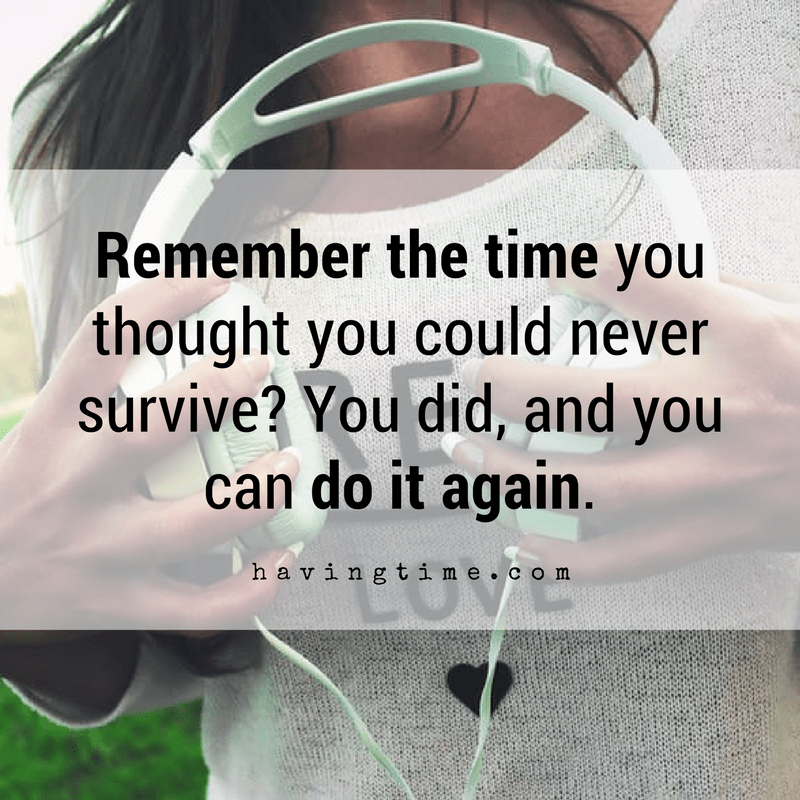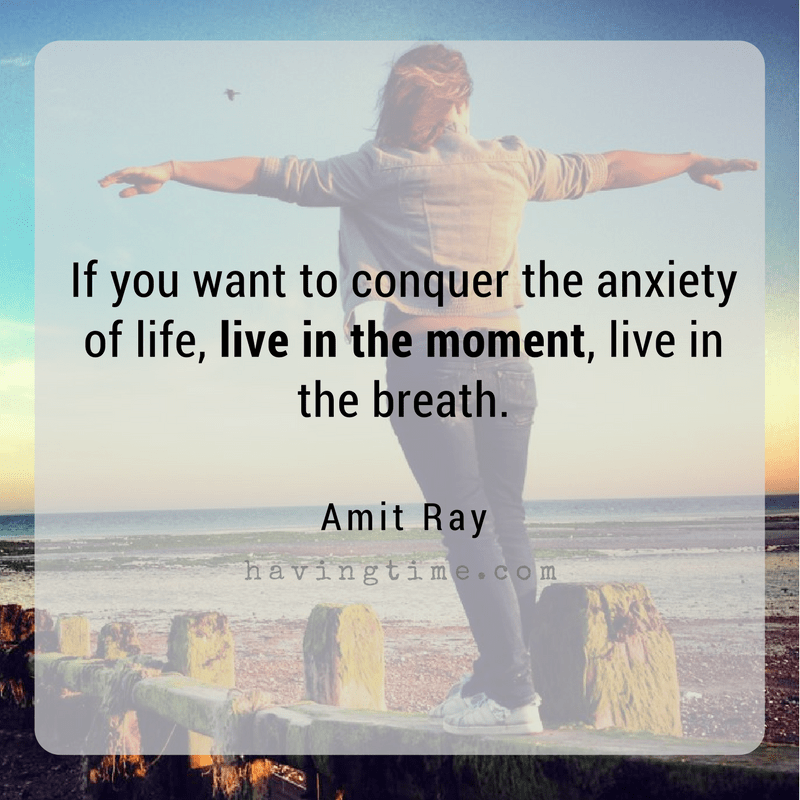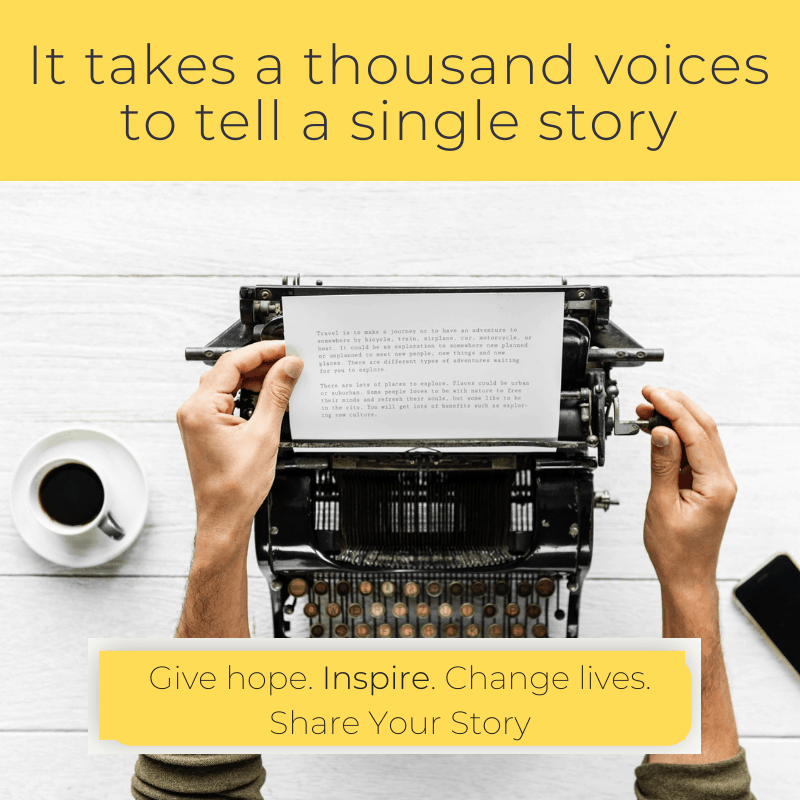
“Breakdowns can create breakthroughs. Things fall apart so things can fall together.” – Unknown
In March earlier this year, following the completion of my company’s third round of funding, I suffered from a debilitating mental breakdown which resulted in several trips to A&E and a trauma therapist. However, there is a saying that “a breakdown can be a breakthrough”.
I can’t really emphasize this enough: fundraising is NOT good for your health. It is all or nothing, and every entrepreneur is very conscious of this.
Unfortunately for me, I was not only was dealing with the stress of fundraising and insomnia. Little did I know that I was also carrying the post-traumatic stress of growing up in a chaotic home environment and of the physical, intellectual, emotional, sexual and spiritual abuse throughout my childhood.
Through recovery, I learned some valuable lessons…
The Liberation of a Breakdown: How to Make Hard Times Easier
Lesson #1: Self-help doesn’t work
“Stop seeking”, I remember Chris John telling me. Chris is one of Europe’s leading trauma therapists who has trained extensively with Pia Mellody of The Meadows rehabilitation centre (and author of “Facing Codependence” and “Facing Love Addiction”).
Before I started seeing Chris, I was a self-help addict, and I always thought that if I read enough self-help books, I could heal my wounds. After going over my history, he pointed out that I had experienced lots of trauma growing up. What?
Trauma isn’t always caused by cataclysmic events such as war and earthquakes. A parent hitting you or a teacher shaming you in front of the class is felt very intensely as a child, and it traumatizes us. These early frightful experiences get stored in the oldest part of the brain, the “Reptilian Brain”, which doesn’t respond to logic. It can, however, respond to feeling. As Chris says, when it comes to trauma: “feel with it, don’t deal with it”.

Most self-help books are about doing and achieving: the antithesis of feeling. I know several people who have read numerous self-help books but are still suffering from multiple issues including toxic relationships, addiction, codependency, etc. While self-help books can provide some useful guidance, they are by no means a cure for trauma.
However, self-help can be useful when it brings to light one’s own unconscious or unhealthy behavior. Awareness brings acceptance, and self-acceptance leads to growth. As the famous psychologist, Carl Jung, once said, “until we make the unconscious conscious, it will determine our lives, and we will call it fate”.
Lesson #2: Death is a powerful reminder
When I was crying in a mental health unit in A&E, all my goals and resentments just fell away. It was then that I remembered what truly matters in life: health, well-being, love, family, friends and living a life that is true to myself.
I now keep a Latin phrase on my iPhone lock screen: “Memento Mori et Tu Ipse Esto”, which means “remember death, and be yourself”.

Lesson #3: Everything we believe about happiness is wrong
Back in March, my company was valued at £1.7 million. I was dating some beautiful women, and my body was in pretty good shape. However, it wasn’t enough; I needed more. More money. More sex. More achievements. More more more. This phenomenon is known as “hedonic adaptation”, where people quickly adjust to normal levels of happiness following a positive (or negative) event.
My workaholism and pursuit of more led to burnout and breakdown. It was after my ordeal I realised that lasting fulfilment and happiness comes from within.
How I recovered from a breakdown
Recovery from my breakdown has been a long and painful journey. Though I still struggle with insomnia, fatigue, and anxiety, I am definitely on the road to getting better.
Here are some therapies that helped me a lot:
Trauma Reduction Therapy
According to Chris, conditions such as addiction, anxiety and depression disorders are the result of childhood trauma, thus, addressing that is treating the cause rather than the symptoms.
This type of therapy can involve:
- Family of Origin work (examining your entire family system)
- Somatic Experiencing (wailing like a baby)
- Shame Reduction (having imaginary conversations with people who have hurt you and giving back their shame and fear)
- Eye Movement Desensitisation and Reprocessing (moving your eyes rapidly back and forth while recalling traumatic experiences)
- Bioenergetics and Trauma Release Exercise (TRE)
When animals get attacked in the wild, they end up shaking afterward, and this discharges fight-or-flight hormones and resets their nervous system. Trauma gets trapped in our nervous system for years after a traumatic event and induces post-traumatic stress.
Bioenergetics and TRE involve “charging” and releasing the muscles, which causes involuntary shaking. It is in the shaking that the healing of historical wounds can occur.
Guided Meditation
Mindfulness has been shown to decrease the size of our amygdala, the centre of our brain responsible for releasing fear hormones. However, like many workaholics, I struggle with meditation.
Calm is a guided meditation app that I have found helpful. Unlike other meditation apps, it has soothing ambient sounds, such as the sound of a flowing river, to help filter out background noise when meditating (a must-have when you live in a noisy city like London). The “21 Days of Calm” training programme allowed me to learn fundamental concepts of meditation quickly. There’s also a new meditation available every day called “The Daily Calm”, which has powerful messages in it to ponder during the day.
Fun, Dance and Self-Defence
Perhaps the best kind of therapy. On occasions where I had enough energy, I went bowling with friends and did Ecstatic Dance (dancing in a meditative state). When I was having fun, I forgot all about my problems, and I always felt better afterward. I’ve also found self-defense very empowering (I highly recommend Sharif Joynson – a former army reservist).
What’s next
My mental breakdown caused me to re-evaluate my life and my priorities. I feel like a new man, and my goal now is to continue inner healing, as that is where true happiness lies.
I plan to write a book called “The Great Deception” (working title) which is about the myths of happiness (such as “I’d be happier if I had a better body”), and I debunk them using anecdotes, celebrity case studies, and research. You can find out more at my website.





